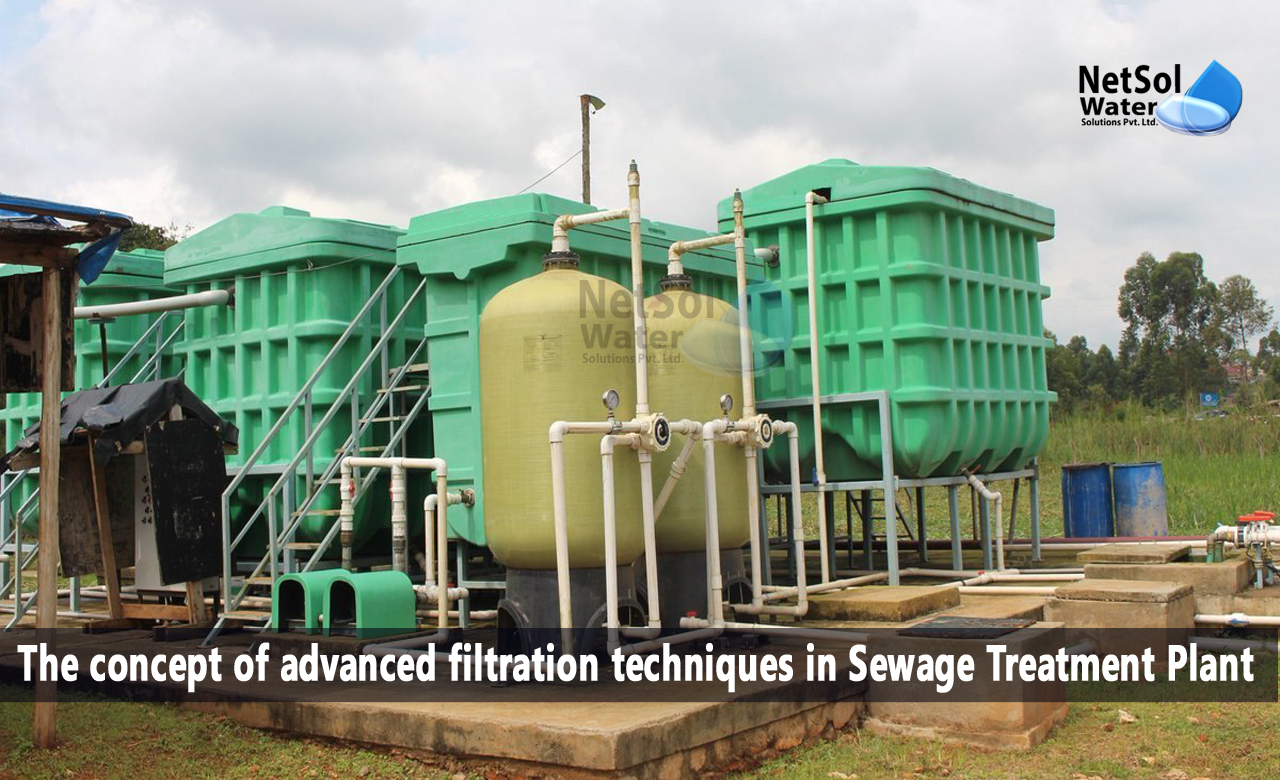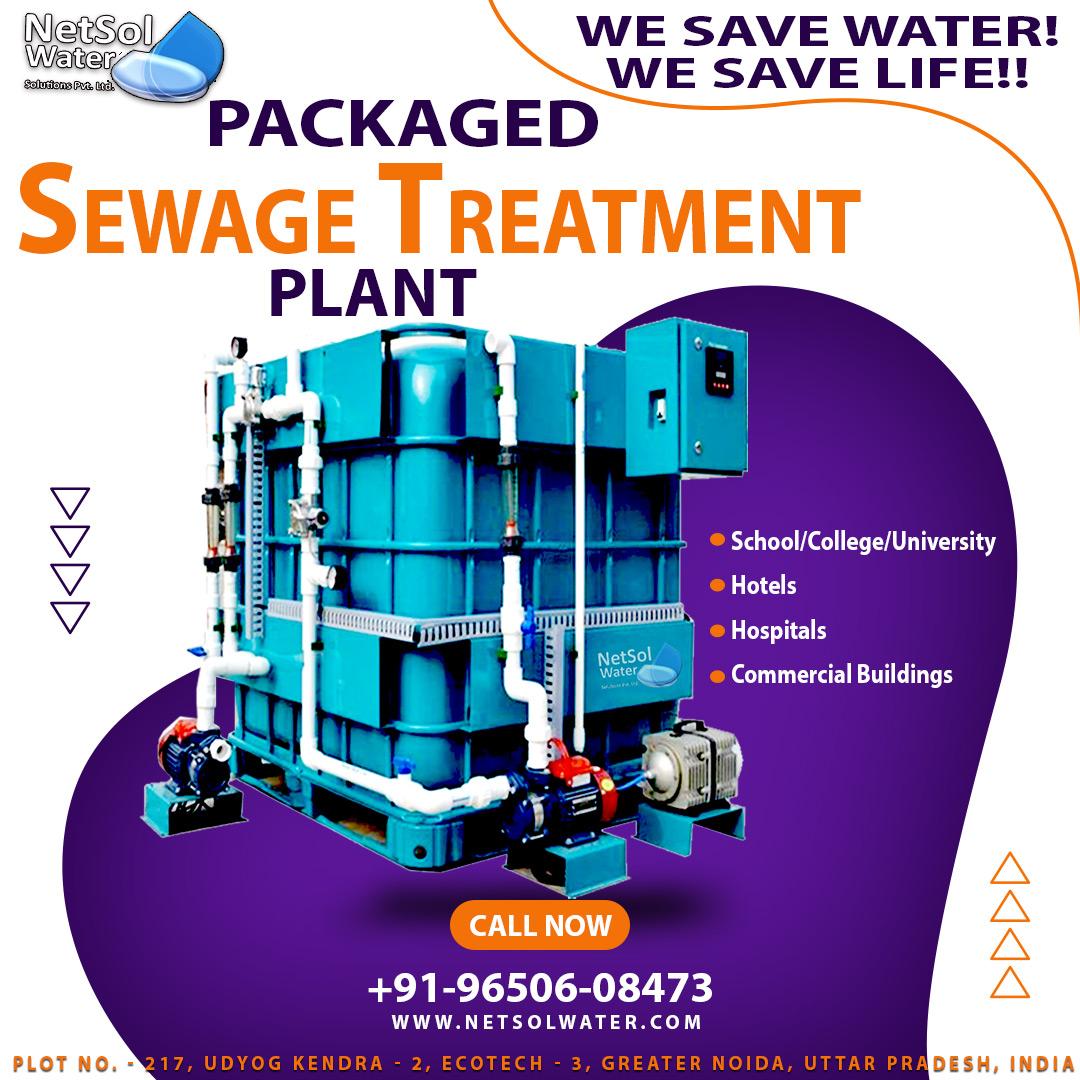What is the concept of advanced filtration techniques in STP Plant?
Sewage treatment plants are critical for ensuring the safe and effective treatment of wastewater before it is released back into the environment. With the increasing demands on water resources and stricter regulatory requirements, it has become essential to enhance the treatment efficiency of sewage treatment plants. Advanced filtration techniques offer an effective solution to improve the removal of contaminants, pathogens, and pollutants from wastewater.
In this blog post, we will explore the concept of advanced filtration techniques in sewage treatment plants and their role in enhancing treatment efficiency.
Understanding Advanced Filtration Techniques in Sewage Treatment
The Importance of Filtration in Sewage Treatment
Filtration plays a vital role in the removal of suspended solids, fine particles, pathogens, and other contaminants from wastewater during the treatment process. It helps improve water quality, reduce environmental pollution, and protect public health.
Advanced Filtration Techniques
Advanced filtration techniques go beyond conventional filtration methods and utilize innovative technologies to achieve higher removal efficiencies. These techniques include:
- Membrane Filtration: Membrane filtration involves the use of semi-permeable membranes, such as microfiltration (MF), ultrafiltration (UF), nanofiltration (NF), and reverse osmosis (RO), to separate suspended solids, bacteria, viruses, and dissolved substances from wastewater.
- Granular Media Filtration: Granular media filtration employs various types of filter media, such as sand, anthracite, or activated carbon, to remove suspended solids and certain contaminants from wastewater.
- Biological Filtration: Biological filtration utilizes microorganisms or biofilms attached to filter media to remove organic matter, nutrients (such as nitrogen and phosphorus), and some pathogens from wastewater.
- Adsorption Filtration: Adsorption filtration involves the use of activated carbon or other adsorbent materials to remove dissolved organic compounds, trace contaminants, and odor-causing substances from wastewater.
Benefits of Advanced Filtration Techniques in Sewage Treatment
Enhanced Removal of Contaminants
Advanced filtration techniques offer improved removal efficiencies compared to conventional treatment methods. Membrane filtration, for instance, can effectively remove bacteria, viruses, suspended solids, and even some dissolved pollutants. Granular media filtration and adsorption filtration also provide superior removal of contaminants, including organic compounds, heavy metals, and trace contaminants.
Pathogen Removal and Public Health Protection
Advanced filtration techniques, such as membrane filtration, are highly effective in removing pathogens, including bacteria and viruses, from wastewater. This helps protect public health by reducing the risk of waterborne diseases and ensuring the safety of treated effluent.
Nutrient Removal for Environmental Protection
Advanced filtration techniques, such as biological filtration and membrane filtration, can also target nutrient removal, particularly nitrogen and phosphorus. Excessive nutrient discharge can lead to water pollution and eutrophication in natural water bodies. These advanced techniques help mitigate environmental impacts and protect aquatic ecosystems.
Improved Water Reuse and Resource Recovery
By implementing advanced filtration techniques, treated wastewater can be further purified, allowing for its safe reuse in various applications such as irrigation, industrial processes, and groundwater recharge. Additionally, these techniques facilitate resource recovery, such as the extraction of valuable components like phosphorus or the production of biogas from wastewater treatment by products.
Applications of Advanced Filtration Techniques in Sewage Treatment
Pre-Treatment for Membrane Filtration
Membrane filtration, including MF, UF, and NF, is often preceded by pre-treatment processes such as screening, grit removal, and primary sedimentation. These pre-treatment steps help protect the membranes from fouling and prolong their lifespan.
Membrane Bioreactors (MBRs)
Membrane bioreactors combine biological treatment processes with membrane filtration in a single system. They provide excellent effluent quality, compact footprint, and enhanced removal of suspended solids, bacteria, and viruses. MBRs are widely used in both municipal and industrial wastewater treatment applications.
Drinking Water Treatment
Advanced filtration techniques, especially RO and NF, are extensively used in drinking water treatment plants to remove contaminants, disinfection byproducts, and dissolved substances. These techniques ensure the provision of safe and clean drinking water to communities.
Challenges and Considerations in Implementing Advanced Filtration Techniques
Fouling and Membrane Maintenance
One of the key challenges in implementing membrane filtration techniques is membrane fouling, which can reduce filtration efficiency and increase operational costs. Proper maintenance, cleaning protocols, and monitoring systems are essential to minimize fouling and prolong membrane lifespan.
Operational Costs and Energy Consumption
Advanced filtration techniques, especially membrane filtration, may require significant energy inputs for operation. Careful consideration of energy-efficient equipment, process optimization, and the integration of renewable energy sources can help mitigate operational costs and reduce environmental impact.
Monitoring and Control Systems
Effective monitoring and control systems are crucial to ensure optimal performance and maintenance of advanced filtration systems. Real-time monitoring of key parameters, such as pressure differentials, flow rates, and water quality, enables proactive maintenance, process optimization, and early detection of operational issues.
Conclusion
Advanced filtration techniques play a crucial role in enhancing the treatment efficiency of sewage treatment plants. With their ability to remove contaminants, pathogens, and pollutants, these techniques improve water quality, protect public health, and contribute to environmental sustainability. By implementing advanced filtration techniques such as membrane filtration, granular media filtration, biological filtration, and adsorption filtration, sewage treatment plants can achieve higher removal efficiencies, facilitate water reuse, and support resource recovery. The continuous development and adoption of advanced filtration techniques will pave the way for more efficient and sustainable sewage treatment processes, ensuring the protection and conservation of our valuable water resources.




